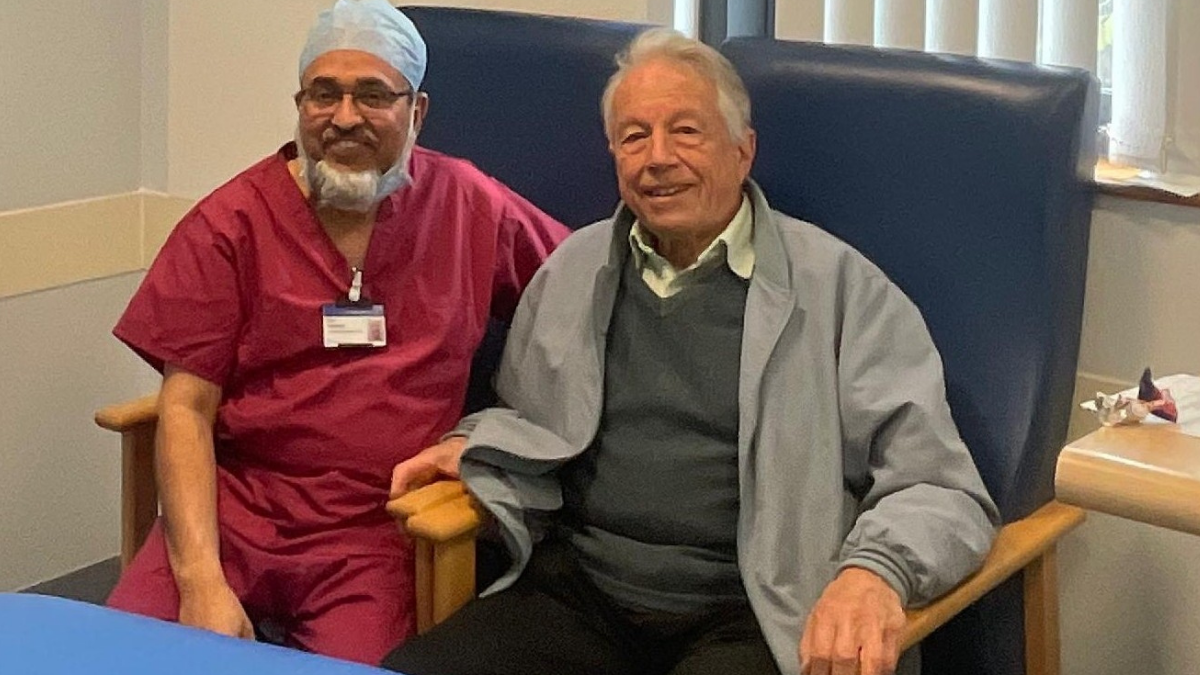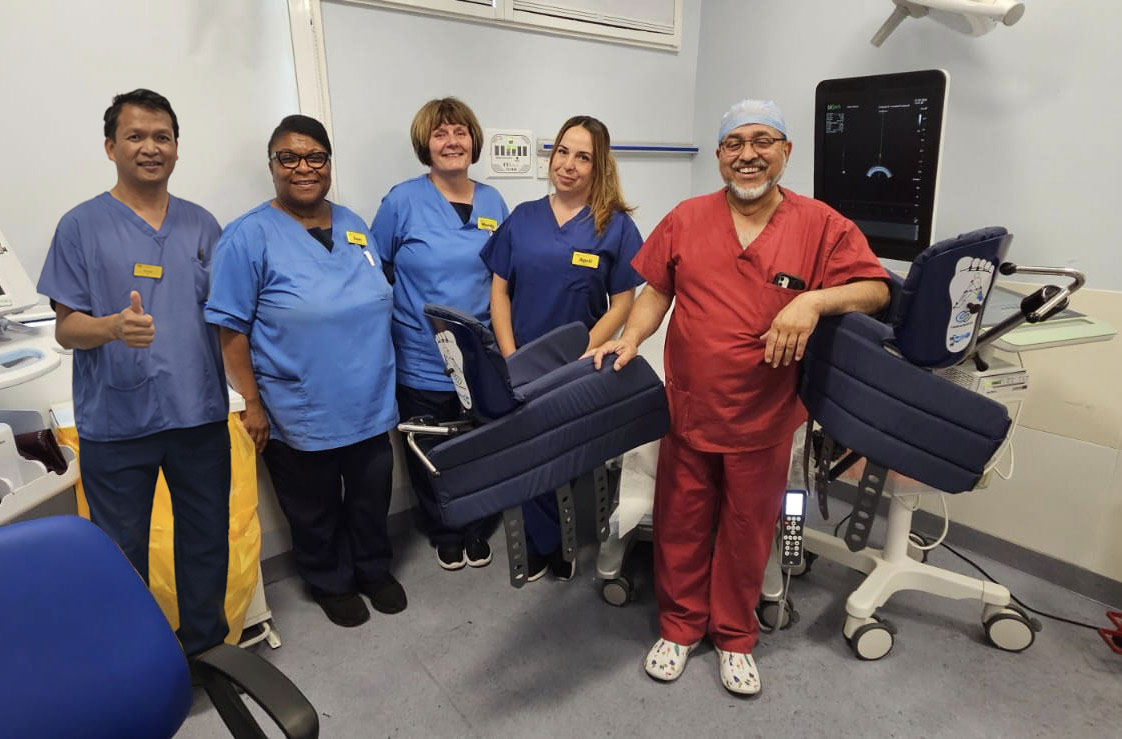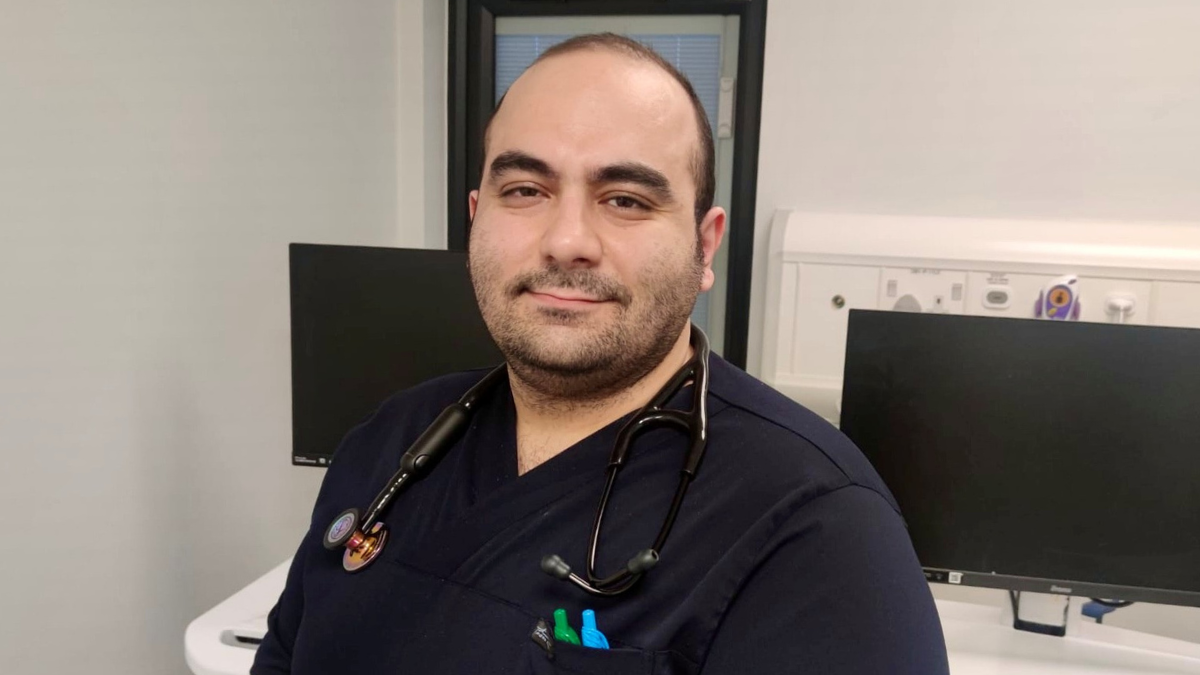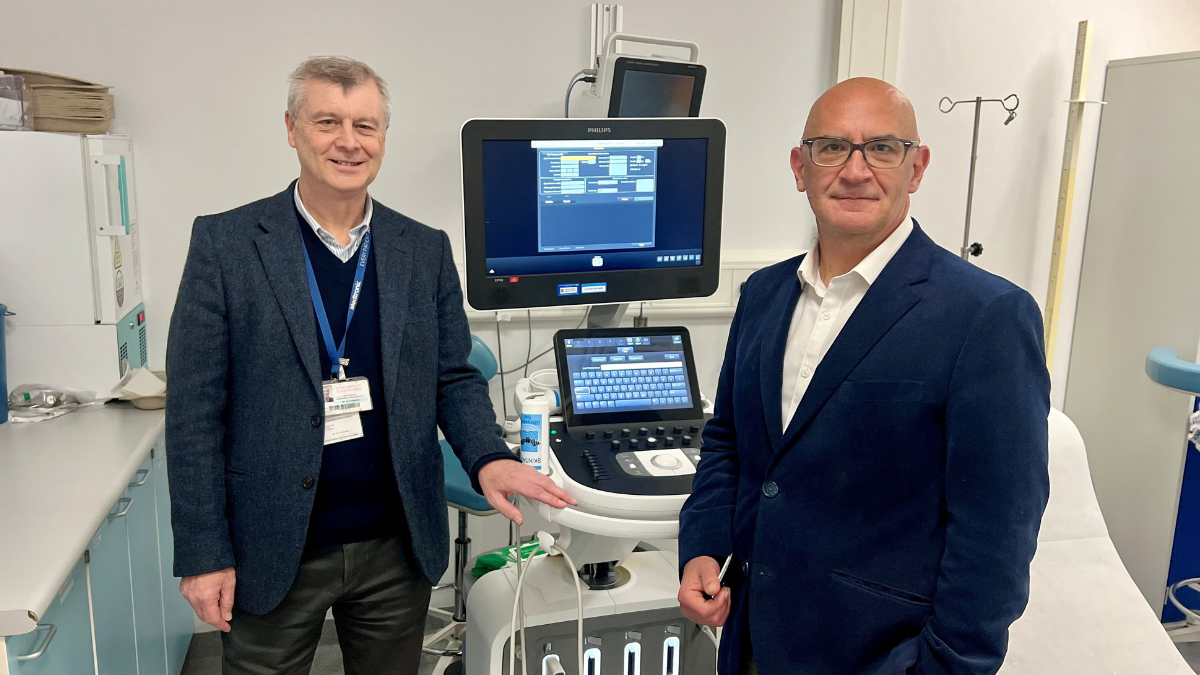New procedure for prostate cancer biopsies
Published on 04/11/2025

A brand-new service at Good Hope Hospital has changed the way prostate biopsies are carried out, improving patient experience and outcomes.
Rather than the existing transrectal procedure, a new ultrasound machine and procedure chair means that the urology team can use a different technique called a local anaesthetic transperineal prostate biopsy or LATP for short.
Mr Siraj Natalwala, Urology Surgeon and Honorary Senior Lecturer, leads the team who carry out around 28 LATP procedures a month at the hospital, and over 150 so far.
Mr Natalwala said, “Carrying out biopsies via the perineum, rather than the rectum, has many patient benefits, including less risk of infection and less chance of bleeding. We don’t need to use antibiotics, oral painkillers or rectal suppositories, which is much better for patients.”
Having worked at UHB for 33 years, and with 25 years’ experience of carrying out transrectal procedures, Mr Natalwala was eager to train in the new LATP technique and offer it to patients, once the correct medical equipment, including the PrecisionPoint Transperineal Access System ™, was in place. Kalpesh Makvana, from global supplier BXTA, spent several months at the hospital training Mr Natalwala and the team to ensure the new technique could be offered safely.
A new ultrasound machine arrived earlier this year, and the whole clinical team has undergone in-house training from their urology colleagues at Solihull Hospital. LATP is now offered at three of UHB’s hospitals, which means that waiting lists can be shared. Mr Natalwala is ably supported by Dr Vijay Gudla, Consultant Uroradiologist, who specialises in prostate cancer biopsies.

Norman Ashfield, 80, is one of many patients who have already benefitted from the new procedure at Good Hope Hospital. Norman, who lives in Wylde Green, went to his GP and was referred to the hospital for tests and scans. He underwent an LATP procedure in the Treatment Centre and said: “The staff were extremely pleasant, positive, and helpful, with one nurse holding my hand throughout and talking to me. The whole procedure was over in an hour and, although a little painful, the body healed quickly, and I am certain it was preferable to the old way of carrying it out.
“Receiving a cancer diagnosis is very difficult but I remember Mr Natalwala being so professional and positive. He leant over to me and said reassuringly, “We have treatments to cure this”.
“I would encourage all men who have concerning symptoms, such as difficulty passing urine, to see their GP – we seem to avoid medical things, and I hadn’t seen my doctor for years. It might be bravado, but we need to seek help when we need it. There are some problems you can’t get something from Asda to solve!”
“Overall, it was brilliant treatment, and I’m really thrilled that I was able to have this procedure at my local hospital. After five weeks of radiotherapy treatment at the QE, I feel that I’m doing really well and have hope and confidence for the future. The NHS service is tremendous, and I’d like to thank the teams involved in my care, including Mr Natalwala, Julie Lewis, my Clinical Nurse Specialist in Urology, and Dr Ford, Consultant Clinical Oncologist.
Mr Natalwala continues: “The Good Hope team are brilliant and have all been eager to learn this technique as they see the patient benefits. We have also had over 100 clinical attachés who observed us and some who are on placements. In fact, Mr Ashfield was kind enough to let several international medical graduates observe his procedure, which we really appreciated.”
“We wouldn’t be able to offer this new service without the amazing support and commitment of our healthcare assistants, nurses, and operational colleagues, including Mohammed Nawaz and Stuart Dale, who have backed us all the way. It’s a real team effort.
“Our plans for the future are to extend the LATP service to offer it to a larger catchment area by increasing the number of sessions every week.”


